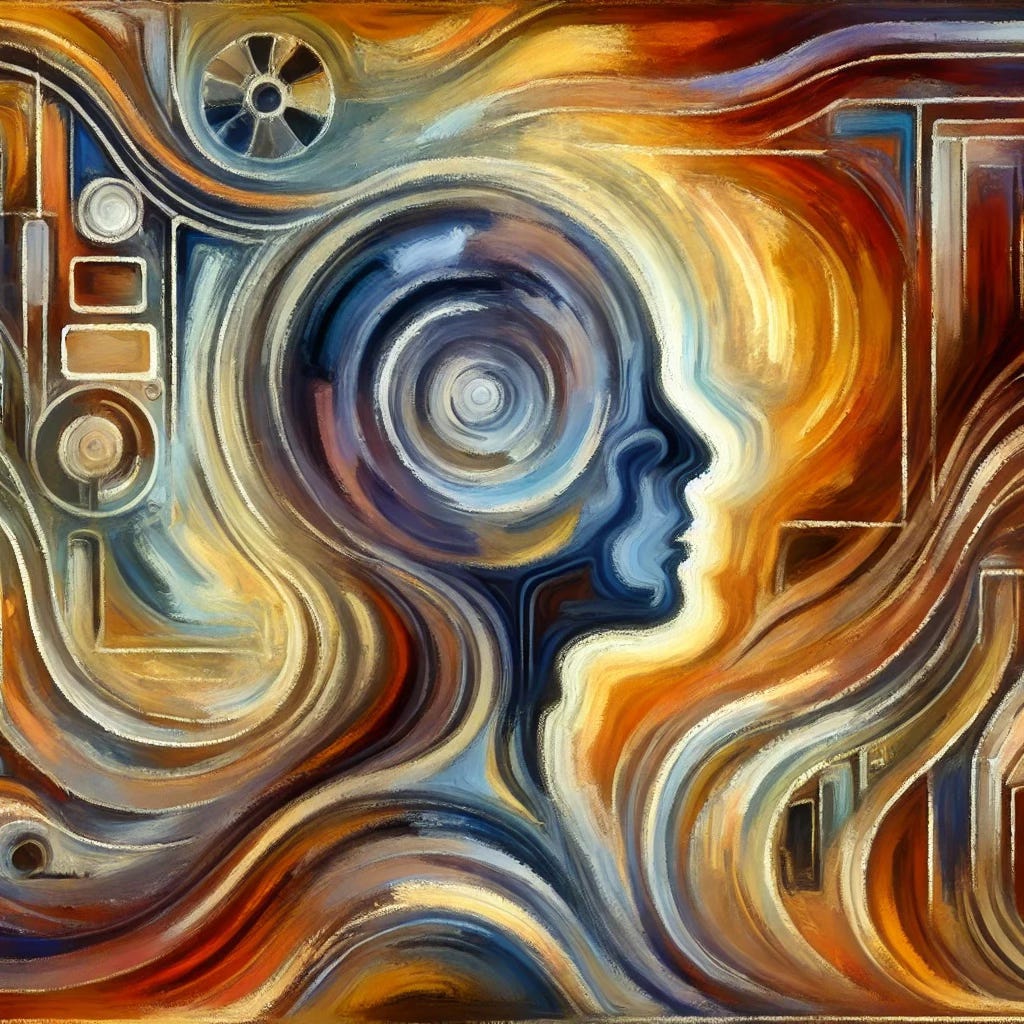Real quick in other news, I have events lined up across New York State for Queer Mythology through January 2025. Please join me at the book launch event October 6th at Lofty Pigeon Books in Brooklyn, New York, and stay tuned to my social media for more events coming soon.
A Lifelong Study in How We Relate to Stories
I was digging through some old files recently and was reminded of my thesis from over twenty years ago. It's not that I ever forgot about it. In fact, it's a piece of writing I’m still proud of, even two decades later. The ethnographic research and comprehensive literature reviews I completed back then feel like a luxury of time I could only dream of now. But what struck me the most as the file name flashed by was how familiar it all felt—it’s the same thing I’m still thinking, podcasting, and writing about today: the way we relate to story. How narratives weave themselves into the fabric of our identities. How we internalize these stories and, in turn, project ourselves outward, refracted through the lens of the tales we've absorbed.
Titled Whose Pop Culture?: Reverse Appropriation and Agency in Popular Culture and Gay Identity, my thesis explored the complex relationship between gay male identity and pop culture, challenging the dominant theories that often cast popular culture as an oppressive force molding passive audiences. Through a combination of in-depth interviews with gay men from New York City and extensive literature reviews, I examined how popular culture is not just a tool of hegemony but a space for agency—where individuals, particularly gay men, actively construct and negotiate their identities.
At the heart of my research was a critique of classical media theories—like the Frankfurt School's "culture industry" and Marshall McLuhan’s media theory—which depict pop culture as a top-down structure, leaving little room for individual autonomy. These frameworks tend to reduce audiences to passive consumers of mass-produced media. In contrast, more contemporary sociological approaches, like "New Audience Research," argue that people don’t just absorb media; they engage with it, creating personal and collective meanings from cultural texts.
My focus on gay male identity sought to address a gap in the literature, where discussions of how gay men engage with and reshape pop culture were often missing. My findings demonstrated that gay men are not merely consumers of popular culture; they are active participants, negotiating their identities within it. Pop culture, for many, becomes a space of self-expression, where they can both affirm and challenge societal norms.
One of the key concepts I introduced is "reverse appropriation." This process involves gay men repurposing elements from mainstream culture—often designed for mass appeal—in ways that affirm their identities and communities. In doing so, they transform cultural objects from tools of marginalization into instruments of empowerment, resisting dominant narratives and asserting their agency. The men I interviewed curated their pop culture consumption to reflect and reinforce their identities as gay men.
This interaction with popular culture extends beyond the personal; it fosters community and activism. Far from being homogenizing or disempowering, pop culture, when actively appropriated, becomes a platform for social justice and collective empowerment, challenging the notion that mass media always subjugates its audiences.
And if you want to read my thesis in its entirety, unedited for over two decades, here you go, you can read the whole 46 page document here.




